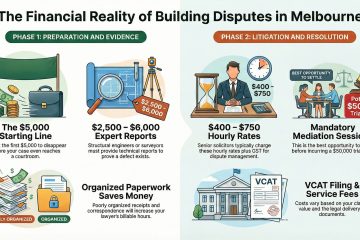Family law attorneys are an invaluable asset when it comes to child custody cases, yet legal representation can be costly. Luckily, there are multiple payment plans that can help cover attorney fees.
Court orders and other factors can play an integral part in establishing financial responsibilities for each of the parties involved in a case, while resources like pro bono legal aid services provide valuable support in covering costs for low-income individuals.
Negotiated Agreements
In cases where both parties can reach an agreement on the terms of their child custody agreement, they may be able to arrange their own attorney fee arrangement and save time and money in the long run as well as reduce tension and conflict between parents. It will also benefit children involved by less court-related conflict being experienced by them.
Child custody cases typically incur legal expenses in one form or another, whether contested or uncontested. Legal costs often include filing applications and petitions, conducting investigations, hiring experts for court hearings and related expenses – costs that can quickly add up if attorneys charge hourly.
Complexity is another factor that will impact who pays attorney fees in a case, with mediation sessions and multiple court appearances typically incurring higher legal costs than more straightforward litigations. Financial resources of both parents are also taken into account as is any behavior which prolongs litigation proceedings.
Child custody cases involve additional expenses beyond legal fees alone. These may include professional services from forensic psychologists and counselors as well as costs for court testimony preparation or presentation – as well as re-examination documents, photocopying fees, or related expenses.
Legal fees in custody cases have an important bearing on both their final outcome and how much time and money is expended in legal proceedings, so child custody attorneys strive to reach an equitable and just result for their clients.
Parents unable to afford legal representation on their own may qualify for pro bono assistance or seek out legal aid services organizations, which offer low or no cost representation in family law matters (such as custody cases).
Court Orders
Courts may order one parent to cover the attorney fees of their partner in certain types of cases, most commonly when there are children involved in divorce or dissolution proceedings. A judge usually bases his or her rulings on evidence and what is in the best interests of the child and may include visitation arrangements and other provisions as necessary.
Courts typically follow legal precedent that dictates both parties should bear their legal expenses equally in most cases, although in situations in which one party has significant financial resources or holds superior status within a relationship, judges may consider compensating financially disadvantageous parties for some or all attorney’s fees accrued due to litigation through fee shifting. This practice has long been utilized as part of legal disputes.
Parents in child custody cases may incur various expenses, such as filing fees, document preparation charges and expert witness costs. While generally parents should contribute proportionately based on their incomes, judges have discretionary powers to waive fees in cases of significant financial hardship or extenuating circumstances. Furthermore, legal aid services exist for those who can’t afford private attorneys.
Even after an initial custody or parenting arrangement is approved by a court, parents may still need to return for modification proceedings at some point in the future. Courts typically allow modification proceedings when there has been a substantial change in circumstance warranting modification; for instance if one spouse claims they are abusing substances then the court could order that individual to cover all attorney fees associated with filing their own legal case against their partner.
Custody issues are typically resolved through final orders that outline details of legal and physical custody in a parenting plan created between both parents, approved by a judge, known as settlement or trial proceedings if one parent violates an agreement; either way they are legal processes with potential consequences should one party breach an order such as Custody X Change tool being used to monitor violations.
Fee Waivers
Costs associated with filing for child custody modifications can be prohibitively expensive. Fees depend on your jurisdiction and could include filing fees, court costs for copies of previous court orders, document preparation fees, expert witness charges and miscellaneous expenses. As these expenses add up quickly it can make filing difficult. It is also important for parents to remember that losing litigants aren’t automatically ordered to cover attorney fees; courts evaluate various factors when deciding who pays their legal bills in contested child custody disputes.
Courts also take into account both parties’ financial resources as well as the complexity of their case. More complicated cases require additional time from attorneys and often result in higher legal fees; fees tend to increase further if one parent becomes more involved by filing motions or taking other aggressive steps that extend legal proceedings.
One important consideration is each spouse’s ability to afford their attorney fees. If one party has access to significant financial resources and additional income streams, they are more likely to pay their own legal bills; otherwise, if one partner cannot afford their attorney alone, the court may waive fees or provide other forms of assistance such as pro bono representation or legal aid services.
Parents seeking custody modification proceedings should seek professional guidance. An experienced family law attorney can help parents explore all available options and navigate complex child custody fees. Furthermore, this attorney will ensure they fully comprehend all expenses involved and make an informed decision whether or not to proceed with their case.
At The Law Offices of Cameron M. Fernandez, we provide advice and representation in all aspects of family law matters – such as child custody disputes. Our firm understands both the emotional and financial strain of litigation associated with such disputes and strives to achieve fair results for each of our clients.
Miscellaneous Fees
Court fees in child custody cases can add up quickly. No matter if it’s for custody disputes or modification requests, both you and your partner should plan for these expenses and identify who might be responsible. Often courts require both parties to undergo financial assessments so as to assess who should cover attorney fees.
General rule states that both parties in a custody dispute are responsible for paying their own attorney fees; however, exceptions do exist. When one party has significantly more income than the other, courts can order that individual to cover legal costs of both parents. Typically this occurs between working parents but could apply in situations in which one parent relies heavily on another for income.
Judges can make one party responsible for the other’s fees if their behavior prolongs litigation, such as concealing financial data or falsifying information; coaching witnesses in bad faith; or otherwise engaging in bad faith conduct that impedes progress towards their custody case. This punishment will serve to discourage such behavior and facilitate timely resolution to family law proceedings.
Both parties in a custody dispute should remember that it will likely involve multiple entities and services, including expert witnesses and evaluations, which can become expensive over the course of a lengthy trial. It is therefore essential to decide who should pay for these costs, and whether tax deductions apply.
Costs associated with child custody cases can be substantial, adding even further stress and uncertainty about who will pay what. But it’s important to remember that there are various mitigating factors available that can help lower these expenses or even eliminate them, and resources available for low-income individuals covering legal expenses. By exploring your options in advance of proceeding with your case while protecting your rights and interests.


